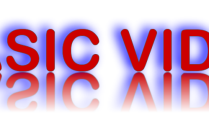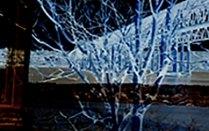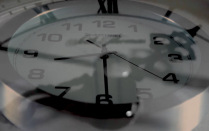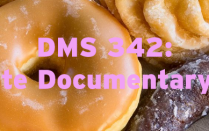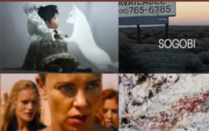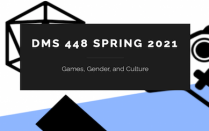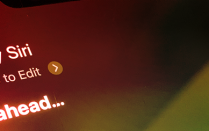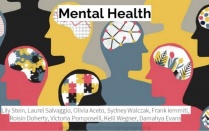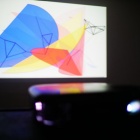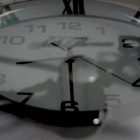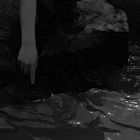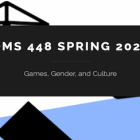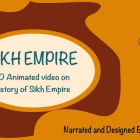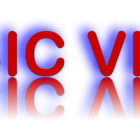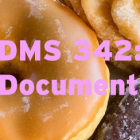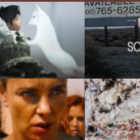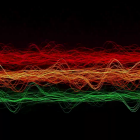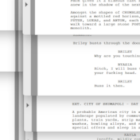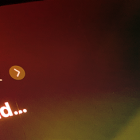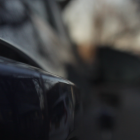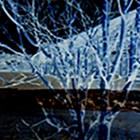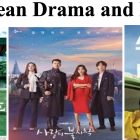Student Showcase 2021

Jump to:
Welcome
Students, faculty, staff, and friends of Media Study! My name is Tom Feeley and I am Chair of Media Study and this is my third spring student show as chair. One of the best traditions in Media Study is our spring show where our students show, present, or exhibit their work. The faculty always describe it as a celebration and I think that is apt, especially when there has been so little to celebrate this academic year. I think this year’s theme of Rebuilding Community is a perfect theme and community is a beacon during these uncertain times. The word community communicates to me collaboration, sharing, reflecting, understanding, and respecting one another. I hope you are able to show your work and/or are able to join in and celebrate the community of artists’ and scholars’ work in the department. So welcome and hope to see you at the show!
Film and Video
DMS 394: Korean Drama and Film
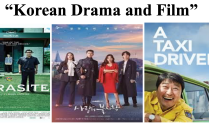
This course offers an introduction to South Korean drama and cinema with attention to
Korean culture and history, TV/cinema/visual cultural analysis, and within the contexts Korean cultural global reach also understood as Hallyu or the Korean Wave.
DMS 418/518: Landscape Projections
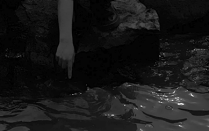
“Landscape Projections” is an advanced special topics course exploringlandscape as a medium, predominantly through the lens of time-based media. “Projections” implies cinematic presentation, but we expand this idea of projection (from Latin projectio(n-), from proicere ‘throw forth’), exploring ideas around forecasts, mappings, visions, and transmission.
DMS 441/503: Advanced Video Production
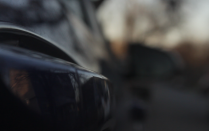
This production course is designed to build on and further students’ conceptual and technical skills in video production. Through a combination of in-class workshops and exercises, assigned projects, and close attention to visual, creative motion picture ideation, students will strive to produce thoughtful, personally meaningful, technically proficient videos.
DMS 598: Project Supervision
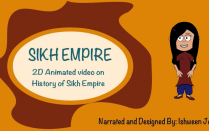
Graduate Student Project Supervision taught by Margaret Rhee
Electronic Literature
DMS 110: Programming for Digital Art
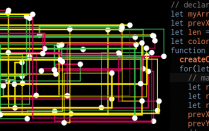
DMS110 is an introductory-level course for media artists and others who want to make interactive work for the web and other platforms. The course also serves as an introduction to programming ideas and practices that can be applied to many other programming and scripting languages – languages that students will use as they work through other DMS courses.
DMS 121: Basic Digital Art
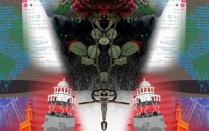
Basic Digital Arts is a hands-on survey of the rich and unique resources that the computer has to offer media practitioners. This course is for majors or non-majors in Media Study, with either very limited or no experience in digital art. It examines the unique capabilities of the computer, as well as its influence on traditional art and media forms.
DMS 201: Green Media
Contemporary media constructs our understanding of nature and reflects our fears and fantasies about rapidly changing environmental conditions. "Green Media" students read
Donna Haraway's text, "Staying with the Trouble" and use her ideas as a lens to analyze projects (fictional & fact-based) that investigate our relationship to climate change, pollution, environmental justice, wildlife extinction.
DMS 435/535: Scriptwriting
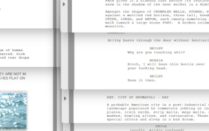
In this production workshop students concentrate on writing and editing script elements for all kinds of media including film, video, game, installation, AR, VR location- or web-based projects. The course explores traditional and experimental methods for generating and structuring text for any genre of fictional, documentary or hybrid work. Scripts include original writing, interviews, collaged or found fragments - which may be performed, heard or displayed in the final piece.
DMS 606: Sound & Space
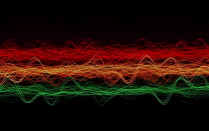
In this course, students interested in learning more about music and sound, and sound’s relationship with and existence ins pace, have been experimenting with creating virtual spaces. (This was particularly germane since the class took place over Zoom, an entirely virtual space.) We have analyzed how sound behaves in real spaces, both natural and human-built, with the goal of understanding how these spaces influence sound, and human perception.
